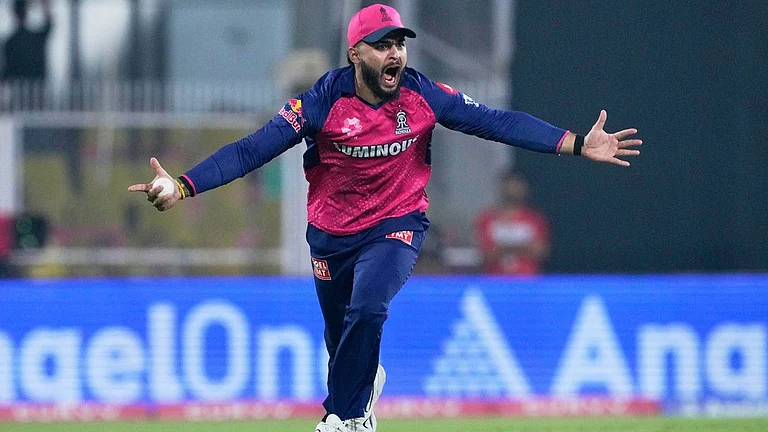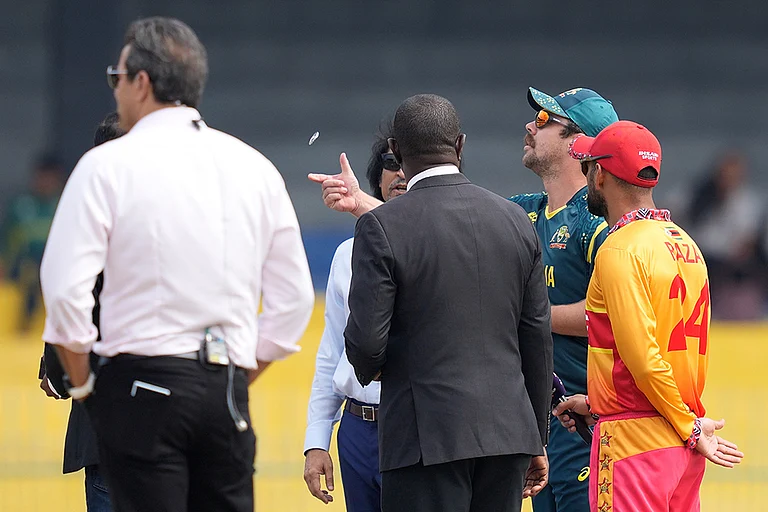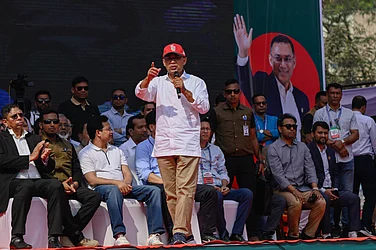Eight-year-old Debosmita Ghosh is a voracious reader. “I am yet to finish the Harry Potter series,” says the bright girl sitting on a customised wheelchair at her Bansdroni home in south-east Calcutta. Debosmita has spinal muscular atrophy (SMA)—a rare genetic, life-threatening neuromuscular disease. “We first realised something was wrong when our daughter was four years old and multiple doctors, including her paediatrician, failed to diagnose it,” says her mother Moumita Ghosh, an optometrist in a private hospital. “When she stopped crawling, we knew something was not right. We ran a series of tests and consulted a number of doctors, one of whom said it could be a case of SMA and advised us to approach the National Institute of Mental Health and Neurosciences in Bangalore.” The rare disease was confirmed when the Ghosh couple underwent a genetic test. “We knew nothing about the disease and were shattered when we were told that our daughter would live only for another two years or so,” says Debosmita’s father, Debashish Ghosh, 46, a BSNL employee. The couple decided to give their daughter all the care they could as long as she lived. “SMA is recessive genetic disorder—a disorder carried within her DNA that she had inherited from us,” says Moumita, 38. “Neither Debashish nor I had any idea that we were carriers of SMA and had unintentionally passed this awful condition on to her.”
That was when Dr Rakesh Shah, a doctor at the Institute of Neuroscience in Calcutta, started a treatment for Debosmita. “She had been diagnosed with Type-2 SMA—an intermediate form of the disease in which the spinal cord stars to bend and the patient’s respiratory health starts deteriorating—so there was a glimmer of hope that she could survive,” says Debashish.
The couple started getting a lot of queries from parents of other children with SMA and ended up floating an organisation called Cure SMA India. Moumita says an injection called Spinraza can stop the progression of the disease, but it is exorbitantly priced. “The entire treatment will cost more than Rs 5 crore in India as the drug has to be imported.” The nusinersen injection, marketed as Spinraza and approved by the US Food and Drug Administration, costs $750,000 in the first year and $375,000 annually after that, making it perhaps one of the most expensive drugs in the world. “Neither the Centre nor the state government has done anything for our cause,” says Moumita. “We have applied for loans for the treatment of the more than 300 children with SMA. But a government-appointed panel has ruled that injecting Spinraza is not a cure, so it is not value for money, neither has it been through clinical trial in India.”
“Every day we are seeing our daughter wasting away…all we hope is to stop the progression of the disease. Social media has helped parents come together and share our experiences with each other. That’s the silver lining in our struggle,” says Debashish as he helps push his daughter’s wheelchair up the stairs to the terrace of the three-storied apartment building. “We are fighting for the rights of the families who have children with rare genetic diseases,” says Moumita.


























